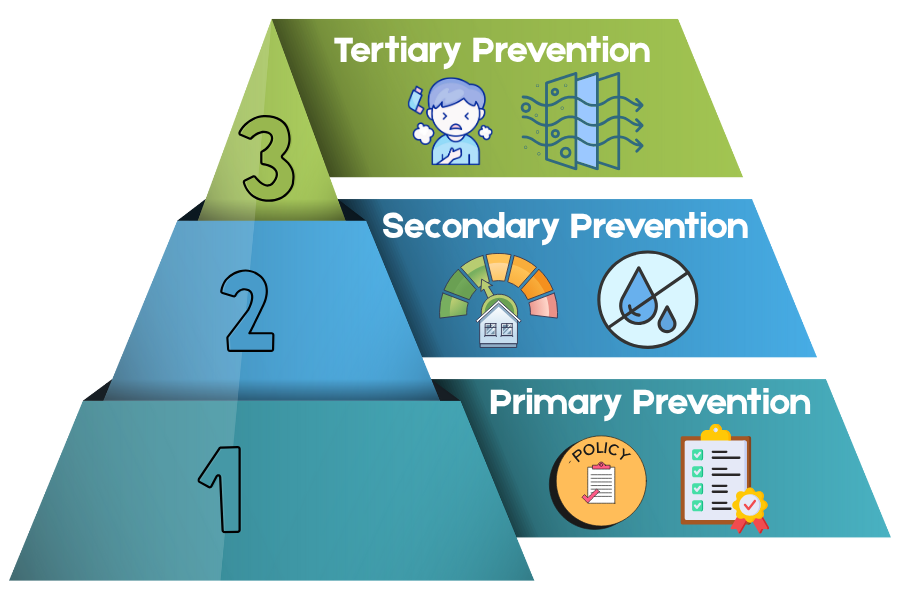Jan 28, 2022
National Building Performance Standards Coalition Sends Clear Market Signals
The National Building Performance Standards Coalition is a group of 33 state and local governments committed to exploring equitable building retrofit policies by Earth Day 2024. The announcement sends a clear market signal and highlights the need for building performance plans to manage and upgrade buildings in the face of climate change. The coalition's commitments to pursue more equitable building performance policies can have ripple impacts in the market and create massive economic opportunities. The Institute for Market Transformation (IMT) is committed to supporting the coalition participants in fulfilling their commitments and building a robust network to do so.
By: Lotte Schlegel

On January 21, the White House announced the National Building Performance Standards Coalition, a group of 33 state and local governments committed to exploring equitable building retrofit policies by Earth Day 2024. We recognize the government leaders for taking action not just in, but with their communities in the face of climate change, to improve health and resilience, and to unlock economic opportunity for their citizens.
Why does this announcement matter?
In the big picture, this announcement sends a very clear market signal. More than 22% of the U.S. population live in the Coalition’s communities and their homes, offices, schools, and other buildings represent nearly 20% of the nation’s building stock. As with communities across the country, the participating jurisdictions of the Coalition face enormous and diverse challenges from climate change, including increased heat waves, air pollution, drought, flooding, and extended power outages in the buildings where they live, work, and learn…not to mention the pollution from the energy and water used in the buildings.
Given that fewer than 2% of our workplaces and schools and less than 1% of U.S. homes get any sort of energy-related upgrade in a given year, the buildings where we spend our time are not prepared for the challenges ahead. Our communities need a building performance plan to manage and upgrade their buildings, to ensure that everyone is safe in a changing climate. And, that can create a lot of local economic opportunity in the process. We are proud to support a coalition of communities that want to do something about this! (See participating jurisdictions in the map below.)We see the Coalition’s commitments to pursue co-designed and more equitable building performance policies having bigger ripple impacts in the market:
- Centering frontline communities in the policymaking process is non-negotiable. Decades of policy and business practices have separated us by race and income into unequally resourced communities and buildings, creating a cycle where some have benefited greatly and others, mostly people of color, have been greatly harmed. Those already bearing the brunt of these systems now also bear the increasing burden of higher energy bills, dirtier air, increased vulnerability to power outages, flooding, and other climate-related disasters, to which poorly planned and operated buildings contribute disproportionately.
- Real estate owners and investors in these communities need to have a building performance plan. Developers in these markets need to be building BEYOND code in order to deliver a long-term, high quality product.
- Increasing the volume of retrofits will scale demand for services, and create massive economic opportunity. If you design, build, help maintain, or sell equipment or services into a building, you need to be ready to meet the need. This can open up tremendous opportunity for entire communities and should prioritize frontline communities and local business.
- Real estate investors more broadly need a building performance investment plan of action. For some leaders, this is in alignment with net zero climate and other environmental, social, and governance (ESG) goals they already have. For the remaining majority, this can be the signal to get off the sidelines and make an active plan.
- Lenders, insurance companies, and re-insurance companies also need a building performance plan—Consider this Coalition your signal. For example, we need mortgage products that enable high-performance construction and renovation.
What’s next?
In the face of climate change and its compounding impacts on our communities, we will only succeed when everyone succeeds. Now is the time for all of us to come together in action. IMT is committing to not only supporting the Coalition participants in fulfilling their commitments but also building a robust network to do so. We applaud the White House Council on Environmental Quality and the participating jurisdictions in forming the Coalition today. We ask now: Will you join us in supporting and harnessing this transformative opportunity?
This article originally appeared on the IMT’s website and is reposted with permission.





